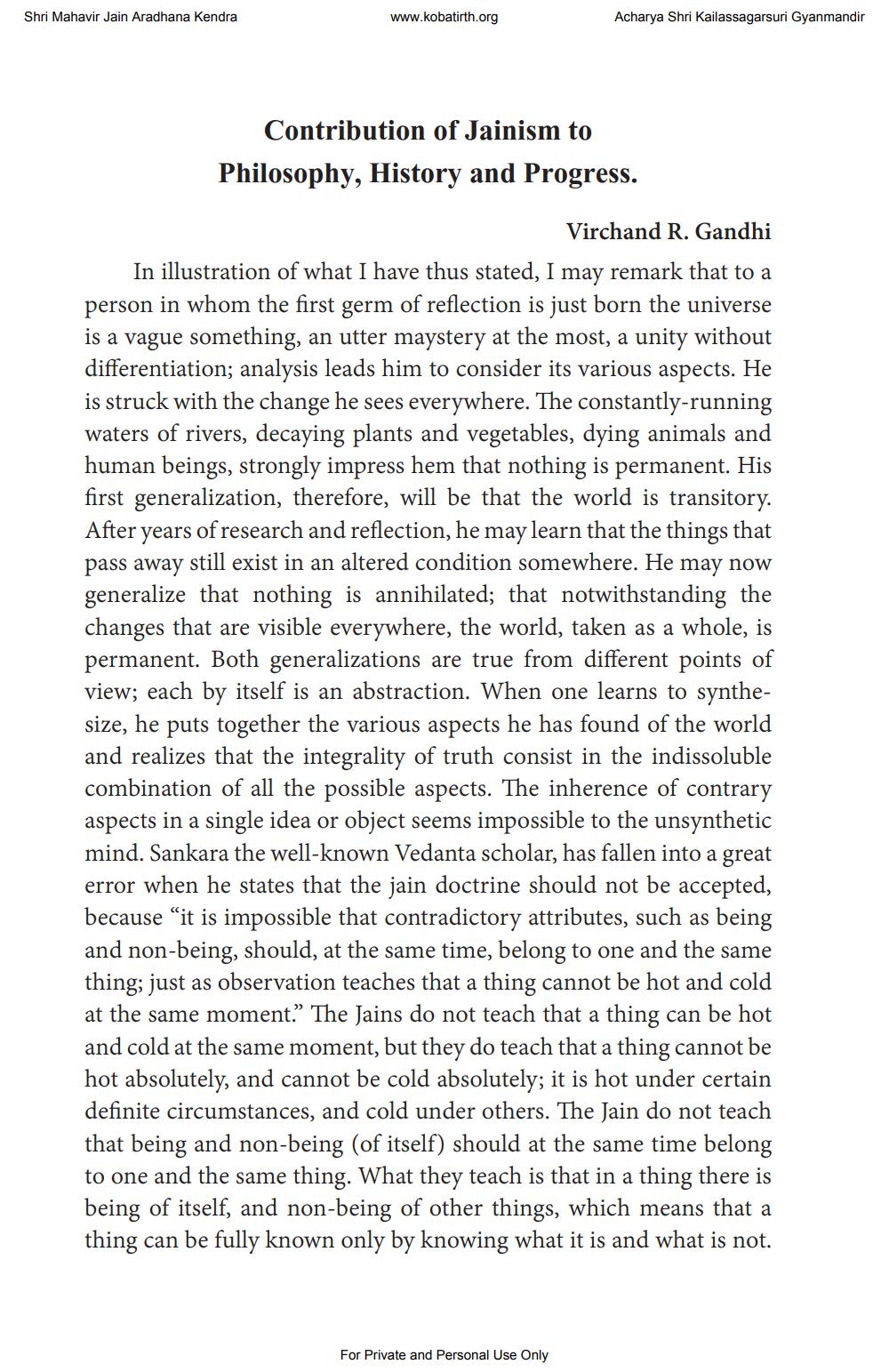________________
Shri Mahavir Jain Aradhana Kendra
www.kobatirth.org
Acharya Shri Kailassagarsuri Gyanmandir
Contribution of Jainism to Philosophy, History and Progress.
Virchand R. Gandhi
In illustration of what I have thus stated, I may remark that to a person in whom the first germ of reflection is just born the universe is a vague something, an utter maystery at the most, a unity without differentiation; analysis leads him to consider its various aspects. He is struck with the change he sees everywhere. The constantly-running waters of rivers, decaying plants and vegetables, dying animals and human beings, strongly impress hem that nothing is permanent. His first generalization, therefore, will be that the world is transitory. After years of research and reflection, he may learn that the things that pass away still exist in an altered condition somewhere. He may now generalize that nothing is annihilated; that notwithstanding the changes that are visible everywhere, the world, taken as a whole, is permanent. Both generalizations are true from different points of view; each by itself is an abstraction. When one learns to synthesize, he puts together the various aspects he has found of the world and realizes that the integrality of truth consist in the indissoluble combination of all the possible aspects. The inherence of contrary aspects in a single idea or object seems impossible to the unsynthetic mind. Sankara the well-known Vedanta scholar, has fallen into a great error when he states that the jain doctrine should not be accepted, because "it is impossible that contradictory attributes, such as being and non-being, should, at the same time, belong to one and the same thing; just as observation teaches that a thing cannot be hot and cold at the same moment." The Jains do not teach that a thing can be hot and cold at the same moment, but they do teach that a thing cannot be hot absolutely, and cannot be cold absolutely; it is hot under certain definite circumstances, and cold under others. The Jain do not teach that being and non-being (of itself) should at the same time belong to one and the same thing. What they teach is that in a thing there is being of itself, and non-being of other things, which means that a thing can be fully known only by knowing what it is and what is not.
For Private and Personal Use Only




